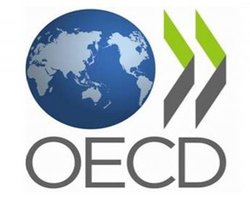An OECD report “How’s Life?” revealed that the global economic crisis has had a severe effect on people’s well being.
Not only have people lost their jobs and income as a result of the crisis, but it has also decreased their trust in governments.
The report found that average life satisfaction decreased by 20 percent in Greece, 12 percent in Spain, and 10 percent in Italy.
However, some countries did experience a moderate increase (such as Sweden, Germany, and Mexico).
Citizens in EU countries that underwent severe economic difficulties also lost trust in their governments and institutions, according to the report.
Respondents are asked to position themselves on a zero–to-10 scale, 10 being the best possible life for them and zero the worst:
Less government trust
The crisis has made citizens more wary of governments. Fewer than fifty percent of the people surveyed in the OECD countries said they trusted their governments. OECD Secretary-General, Angel Gurría, said that “it is a reminder that the central purpose of economic policies is to improve people’s lives. We need to rethink how to place people’s needs at the heart of policy-making”.
Stress at the workplace
The report also highlights how work is directly linked to well-being. Half of people in Europe say that because of poor work organization and work relationships their job is undermining to their health, compared to only 15 percent who have more favorable working conditions reporting that their job is leading to health problems.
The gender gap between men and women
The report revealed that the gender gap between men and women is less in favor of men than in the past, but it still shows that women are behind in income. When it comes to performance at school though, girls are now doing better than boys. However, females still remain underrepresented in fields that provide better job prospects.

